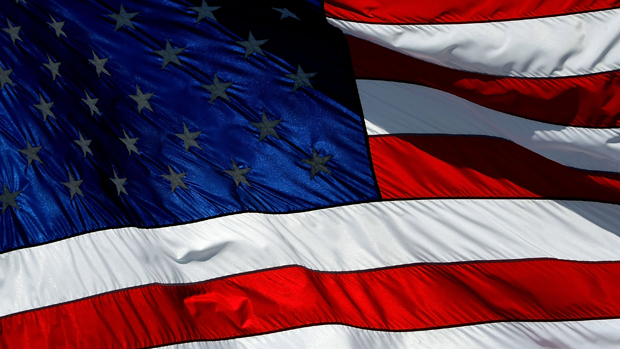Flag-burning in the US: What is the law?
Donald Trump calls for prison term or citizenship to be revoked if people descrate the Stars and Stripes

A free daily email with the biggest news stories of the day – and the best features from TheWeek.com
You are now subscribed
Your newsletter sign-up was successful
Donald Trump has said Americans who burn the US flag should face "consequences", suggesting a year in prison or having their citizenship revoked as suitable punishments.
The president-elect's decision to highlight the issue yesterday is perplexing, says the Washington Post. "Flag-burning is not an issue that has occupied a central position in the American political consciousness of late," it says, although the flag has been set on fire in recent weeks during protests against the presidential election result.
What is the law?
The Week
Escape your echo chamber. Get the facts behind the news, plus analysis from multiple perspectives.

Sign up for The Week's Free Newsletters
From our morning news briefing to a weekly Good News Newsletter, get the best of The Week delivered directly to your inbox.
From our morning news briefing to a weekly Good News Newsletter, get the best of The Week delivered directly to your inbox.
Laws prohibiting the burning or desecration of the Stars and Stripes have been struck down by the Supreme Court, most recently in 1990, because they were found to have violated the First Amendment protecting freedom of speech.
A constitutional amendment that would allow the government to ban flag-burning has been proposed many times but has never passed, says Politico.
What is Trump proposing?
While the president-elect hasn't elaborated on his call, it is possible he will look to resurrect a 2005 bill that would have banned flag-burning - co-sponsored by his Democratic rival, Hillary Clinton.
A free daily email with the biggest news stories of the day – and the best features from TheWeek.com
However, in an interview with CNN, Trump's senior communications adviser Jason Miller "struggled to defend the president-elect's position", says Politico.
What has the reaction been?
Trump has found himself in a minority on the issue, with even prominent Republicans arguing that flag-burning is constitutionally protected.
House majority leader Kevin McCarthy said he "did not agree with the practice" but it was important to protect First Amendment rights.
Senior Republican Sean Duffy added he thought it was "probably right that we want to protect those people who want to protest and their right to actually demonstrate with disgracing our flag".
Other warned Trump had introduced the idea of stripping citizenship rights for political speech.
-
 The environmental cost of GLP-1s
The environmental cost of GLP-1sThe explainer Producing the drugs is a dirty process
-
 Greenland’s capital becomes ground zero for the country’s diplomatic straits
Greenland’s capital becomes ground zero for the country’s diplomatic straitsIN THE SPOTLIGHT A flurry of new consular activity in Nuuk shows how important Greenland has become to Europeans’ anxiety about American imperialism
-
 ‘This is something that happens all too often’
‘This is something that happens all too often’Instant Opinion Opinion, comment and editorials of the day
-
 House votes to end Trump’s Canada tariffs
House votes to end Trump’s Canada tariffsSpeed Read Six Republicans joined with Democrats to repeal the president’s tariffs
-
 Bondi, Democrats clash over Epstein in hearing
Bondi, Democrats clash over Epstein in hearingSpeed Read Attorney General Pam Bondi ignored survivors of convicted sex offender Jeffrey Epstein and demanded that Democrats apologize to Trump
-
 How corrupt is the UK?
How corrupt is the UK?The Explainer Decline in standards ‘risks becoming a defining feature of our political culture’ as Britain falls to lowest ever score on global index
-
 US to send 200 troops to Nigeria to train army
US to send 200 troops to Nigeria to train armySpeed Read Trump has accused the West African government of failing to protect Christians from terrorist attacks
-
 Grand jury rejects charging 6 Democrats for ‘orders’ video
Grand jury rejects charging 6 Democrats for ‘orders’ videoSpeed Read The jury refused to indict Democratic lawmakers for a video in which they urged military members to resist illegal orders
-
 Trump links funding to name on Penn Station
Trump links funding to name on Penn StationSpeed Read Trump “can restart the funding with a snap of his fingers,” a Schumer insider said
-
 Trump reclassifies 50,000 federal jobs to ease firings
Trump reclassifies 50,000 federal jobs to ease firingsSpeed Read The rule strips longstanding job protections from federal workers
-
 Is the Gaza peace plan destined to fail?
Is the Gaza peace plan destined to fail?Today’s Big Question Since the ceasefire agreement in October, the situation in Gaza is still ‘precarious’, with the path to peace facing ‘many obstacles’